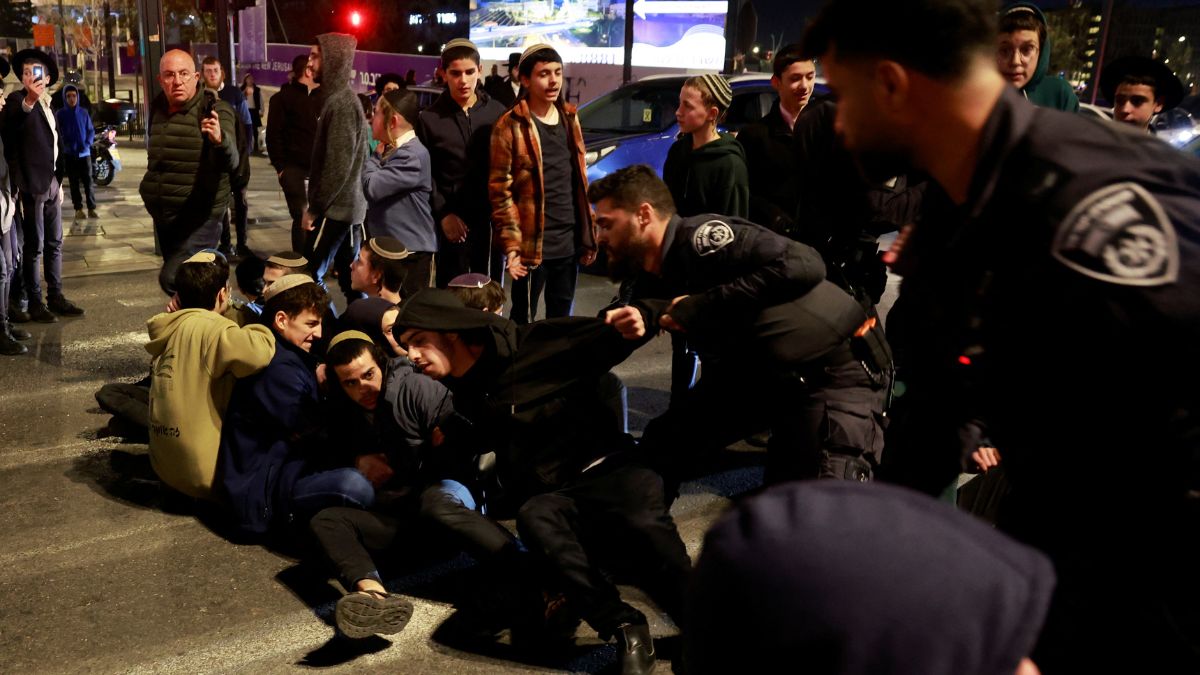The ceasefire agreement between Israel and Hamas has brought a momentary pause to a devastating 15-month-long conflict.
While the deal offers hope for the release of hostages and a temporary halt to the bloodshed in Gaza, some families of Israeli hostages staunchly oppose it.
The phased agreement outlines a six-week truce, during which Israeli forces will gradually withdraw from Gaza. The deal also includes the release of hostages held by Hamas in exchange for Palestinian prisoners detained by Israel.
The first phase of the agreement will see 33 hostages, including women, children, the elderly, and wounded individuals, released over 42 days. In return, Israel will free hundreds of Palestinian prisoners, some convicted of killing Israelis.
The subsequent phases aim to secure the release of remaining hostages and establish a framework for ending the conflict, with provisions for humanitarian aid and reconstruction in Gaza.
Why are some hostage families opposing it?
While many families of hostages have welcomed the ceasefire as a step toward reuniting with their loved ones, a smaller group, known as the Tikva (Hope) Forum, vehemently opposes the deal. Comprised of around 15 families, many of whom are settlers in the occupied West Bank, the Tikva Forum advocates for a hardline approach.
The group’s co-founder, Tzvika Mor, whose son Eitan is held captive in Gaza, argues that the deal endangers Israel’s security. “This deal that Prime Minister Netanyahu is talking about today is very dangerous for my son and for most of the hostages, especially the young men and the soldiers that will stay in Gaza for decades,” Mor told CNN. He added, “Eitan wants me to make sure that the State of Israel will be safe.”
Boaz Miran, another Tikva Forum member whose brother Omri was abducted, shares similar concerns. “We believe all the captives should be returned in one deal, from a position of strength,” Miran said.
He fears that a partial release will leave some hostages in captivity indefinitely. “This deal will determine the fate of my brother Omri to rot in the tunnels of Hamas for months or even years to come,” he added.
The Tikva Forum’s opposition aligns with Israel’s far-right politicians, including National Security Minister Itamar Ben Gvir and Finance Minister Bezalel Smotrich, who have voiced strong objections to the deal. Both ministers have warned that releasing Palestinian prisoners could jeopardise Israel’s future security.
Protests against the ceasefire have erupted across Israel, with hundreds blocking roads in Jerusalem and Tel Aviv. Demonstrators carried signs reading “No to a deal with the devil” and called on right-wing politicians to withdraw from Prime Minister Netanyahu’s coalition if the deal proceeds.
In contrast, the Hostages and Missing Families Forum, which represents most hostage families, has expressed cautious optimism. “This is a significant step forward that brings us closer to seeing all hostages return — the living to rehabilitation, and the deceased for proper burial,” the group said in a statement.
However, they also voiced concerns about the deal’s implementation and its potential to leave some hostages behind.
What has been the human cost of the war in Gaza?
The conflict, which began on October 7, 2023, has taken a devastating toll. Hamas’s attack on Israel resulted in over 1,200 deaths and the abduction of approximately 250 individuals.
Israel’s subsequent military response has killed over 46,000 people in Gaza, according to the Palestinian Health Ministry, and displaced 90 per cent of its population.
Nearly 2 million Palestinians are displaced, with hospitals overwhelmed and infrastructure in ruins. The deal’s provision for humanitarian aid is seen as a critical lifeline, but questions persist about its adequacy.
Amid this backdrop, the families of hostages grapple with uncertainty. Some, like Yehuda Cohen, whose son Nimrod is among the captives, view the ceasefire as a vital step.
“There is still a long way to go,” Cohen told The Washington Post. Others, like Ilay David, whose brother Evyatar was abducted from the Nova music festival, are torn between hope and fear. “It breaks my heart to think that we will have to wait more time, and we don’t know what will be at the end,” David said.
As the ceasefire deal unfolds, its success hinges on the cooperation of all parties involved.
With inputs from agencies
)